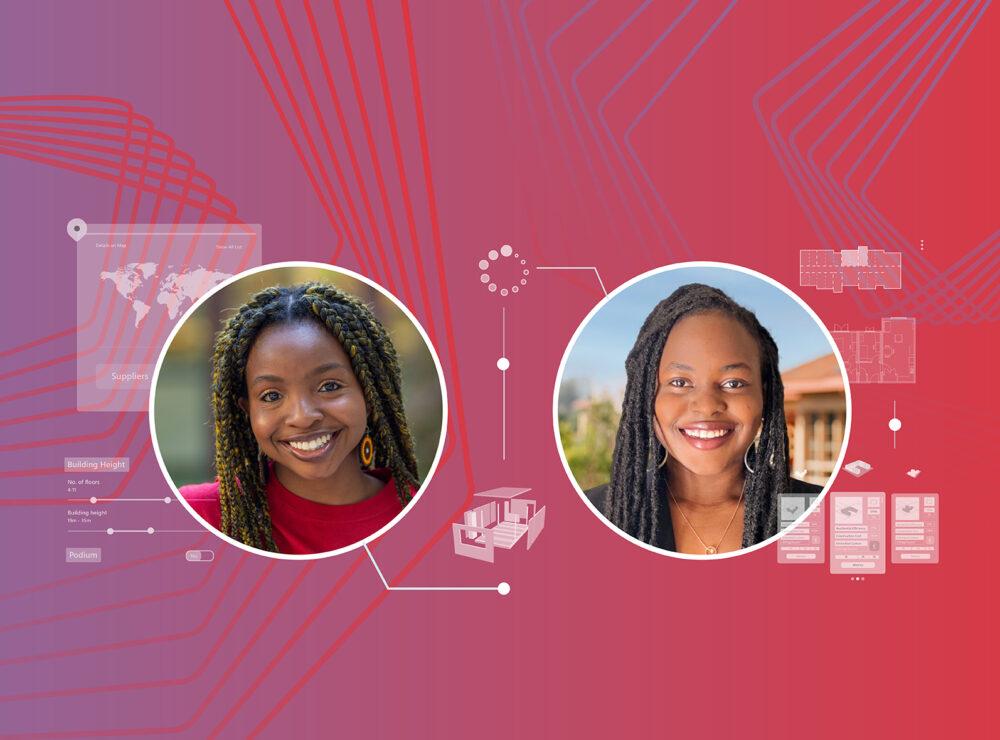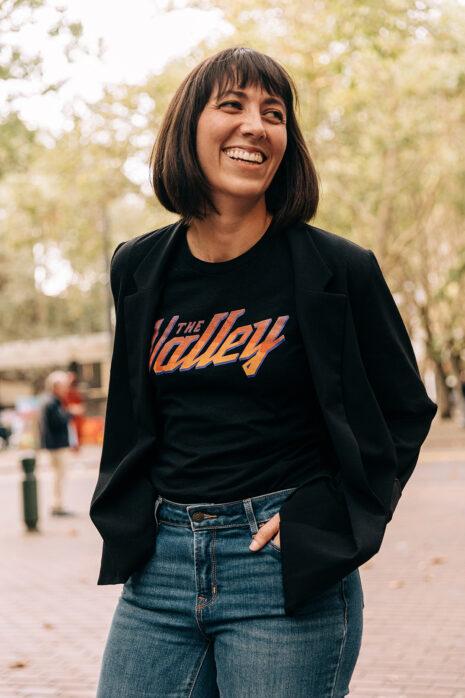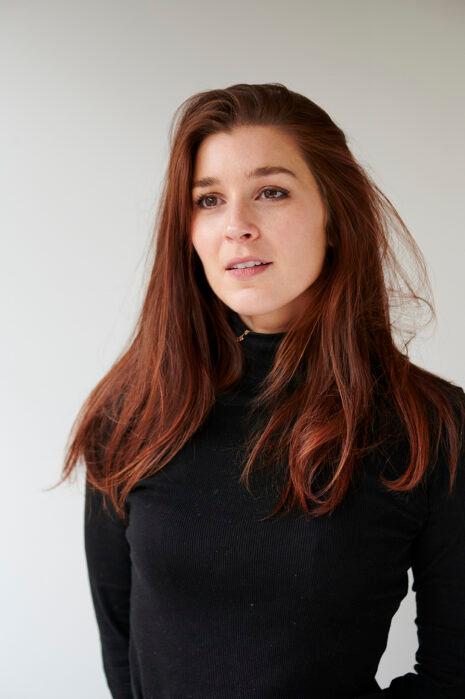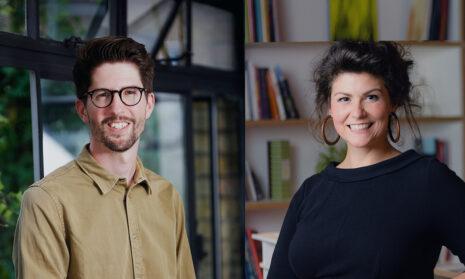What inspired you to choose the construction industry as the focus of your education?
CM: I grew up where housing or any dignified infrastructure is a luxury for people. The surrounding homes and the primary school I attended all needed renovation constantly. I saw my parents’ hard work and sacrifices to ensure we had a modern house. It inspired me to get into the construction field because I think there has to be a more efficient way to provide housing solutions for communities like mine. It must be possible for the construction industry to be modernized in a way that is both environmentally and economically sustainable.
SA: I feel like there’s something profoundly validating about knowing someone’s taking the time to make something for you, learn about who you are, and design for you. As a young kid, I felt everything from the books I read to the technology I was using was not designed for people in an urban African context. When I went to university to study civil engineering, I realized the best structures are built when they’re designed for people and their cultural context. So I became interested in productizing housing because dignification is very important to me and because everybody deserves to have a dignified place they can call home.
What led you to the Stanford Center for Integrated Facility Engineering’s Industrialized Construction (CIFE) program?
SA: We’re both in Stanford’s Sustainable Design & Construction masters program which is related to CIFE. CIFE connects students with a community of researchers and industry members within the architecture, engineering, construction, and operation fields. They’ll come to Stanford yearly for the Industrialized Construction Forum, where some Ph.D. students will participate, and we all exchange ideas. At the time, I was strongly considering a Ph.D. I spoke to my potential advisor, Martin Fischer, who is the director of CIFE. He told me to swing by the center so I could talk to people in this space and see what the industry looks like in terms of research, because you have a good breadth and depth of various experiences. Once I stopped by, I was captivated by the space, so I decided to stay.
CM: I haven’t been directly involved with CIFE. I’m more engaged in the Sustainable Design & Construction program, but I’ve learned much through Simi and I’m hoping I can attend their next conference.
How did you learn about Modulous and get connected to its internship program?
SA: It was at CIFE. I remember going back to speak to Martin, here and there, and then at some point, he pointed to Janet and said, “You know what? Modulous is one of the hot businesses in the industry, and that’s Janet; go speak to her.” I found a time when she didn’t look super busy, and I just went up to her. We had a good conversation and then I asked if she wanted an intern, and she said yes.
CM: I learned about Modulous through Simi. When she returned from the Industrialized Construction Forum, she talked about all the companies she had met, one of which was Modulous. I researched the company and I liked what they were doing because it felt related to what I want to do in the construction space. After that, I messaged Janet. She got back to me quickly, and we set up a meeting to discuss my background and the possibility of interning for Modulous. That’s how I got the internship.
What were each of you tasked with as Modulous interns?
CM: At the beginning of the internship we got to choose between defined scopes within different spaces including sustainability, product design, new product introduction, and operations. I was tasked with the sustainability scope that involved looking at different green certifications relevant to Modulous and seeing how these could help inform the overall business product strategy. I created an assessment tool in Excel to help the business quickly assess how many LEED points a project can get. We were able to think of different use cases for the tool and how it can eventually be incorporated into the digital tool that Modulous is building to assist with feasibility analysis. In addition, I also worked with Cara, their NPI Lead Engineer, to perform some design failure mode analyses that informed some of the engineering and design validation test strategies that needed to be done on the physical product before it’s launched. Working closely with Cara and having back and forth discussions let me know that this was an important piece of work that will contribute to their overall new product introduction strategy.
SA: Our scopes were complementary. I was looking at a Life Cycle Assessment to figure out where we are today in terms of carbon emissions with the current Kit of Parts we designed. I started off comparing different software for the LCA, and after that was done, I eventually came up with a ballpark comparison of what the carbon emissions would be with our overall process versus the traditional method. I took that and threaded it through product testing and product introduction to inform the sustainability strategy we will take.
How would you describe Modulous’ culture?
SA: Modulous has a strong culture of intellectual and psychological safety. On the first day, I took notes of all the words I didn’t know. Then, during our five-minute break, Cara sat down with me and started explaining everything. It’s very friendly and collaborative. There are many instances in which people will be talking and will make sure to bring another person from a different discipline into the conversation. It’s definitely a very fruitful environment for innovation and for people to feel like they can bring their whole selves. I felt comfortable enough to be myself and work naturally.
CM: From day one, I felt heard and seen; this hasn’t always been the case in past experiences. I also observed the collaborative work culture, where people would come together to give a colleague constructive feedback on their work. I could call or message anyone if I had a question, and they would always respond promptly. Even when I felt like I probably wouldn’t be contributing anything meaningful, contributing and voicing your thoughts was always encouraged. It is something that I have appreciated and enjoyed seeing at Modulous.
What does intellectual safety mean to you?
SA: It means I feel comfortable contributing to intelligent conversations based on responses to previous contributions. The notion that no idea is a bad idea. Also, your ideas don’t get stolen. That’s another big one because people hold back if they feel like they don’t get credit for the work they do. For example, at the beginning of our internship, everyone presented some updates. People didn’t hold back in suggesting changes or improvements or in complimenting the work. Typically, people will walk on eggshells with criticism and being open with really good ideas, but here we were, straight to the point, respectful and open.
CM: Intellectual safety means having my opinions heard and valued. I remember on our first day that we arrived in Seattle we were sitting in on meetings and asked to present our thoughts, reflections and feedback from those discussions. Modulous has this culture of saying, “and” instead of “but,” which I think is interesting. It’s such a small thing, but you see how it changes how people construct their feedback and criticism in a helpful way rather than a negative way.
What key learnings will you take away from the internship?
CM: I learned a lot of new concepts within the construction industry that I hadn’t heard of before. We were lucky to work with experienced people who were always eager to share with us what they had learned, how their views changed with experience, and how they are working or provide solutions at Modulous.
SA: When building organizations and teams, I used to think certain compromises were necessary. Like you can’t have the most diverse, friendly team and be profitable. To see the status quo being challenged and also see that innovation is still happening was a reality check and recalibration for me. Women in engineering in this historically male-dominated construction space don’t necessarily have to compromise – you can maintain a heart and do really good work.
Did your work with Modulous change the way you look at your own work in the built environment?
CM: The type of problems that Modulous is solving are problems that I have seen. However, I think the way Modulous approaches each situation is unique. The group’s experience, how they feel about problems, and how they solve issues differ from what I’ve seen traditionally. That’s something I could apply in the future.
SA: Coming to Modulous validated my interest in this space both from a research and industry point of view. I find it intellectually stimulating to consider integrating all this different expertise in the construction process. It’s made me shift to a more collaborative problem-solving mindset.
How has this internship helped you grow as professionals?
SA: It reinforced the importance of asking questions, and taught me how to ask the right questions. And I’ve learned that even when you’re an intern, you must manage (upwards) a reasonable amount. As a professional, I also figured out when to check in on people, say I was done, and so on. I also learned how to manage those interactions and respectfully invite different people into conversations.
CM: I am learning how to ask the right questions to get the help you need to solve a specific problem you’re working on or a given task. Another way that I’ve seen myself grow professionally is through the opportunities to contribute. I was able to talk about my work and present it to different audiences within the company. I valued all these opportunities to work on my communication and presentation skills.
What would you tell students interested in an internship with Modulous?
CM: If you have some interest in this space and get an opportunity to work with Modulous, I’d say go for it. It’s not every day you get to work in a construction company led primarily by women. It was a first for me and exceeded my expectations. I was very comfortable and inspired the whole time; it was just an incredible experience.
SA: It’s a really empowering experience. You’re not always in a team where people are willing to make meaningful sacrifices to get work done. I feel like the more you give, the more you learn and enjoy. In my experience, the more I was able to do, the more I was able to discover. If someone is considering working for Modulous, I’d say, go for it. If you are moved by the space, you’ll have the best experience. It really feels like we’re all coming together to work towards a goal we’re all deeply passionate about; in this sense it’s hard work, but it also doesn’t feel like work at all.
As your internships come to an end, what’s next on your career paths?
SA: We are working on a startup together to push housing within reach of middle-income people in African cities. There are four of us; the two of us are co-founders. In addition to that, I’m also starting my Ph.D. I’m doing my master’s and my Ph.D. concurrently at Stanford, but I will be officially transitioning over in the fall. I’ll be studying the space in which Modulous operates.
CM: I’m excited to be starting my second master’s program officially. I’m excited about it because it compliments my first program well. It gives me that business aspect of things like learning how to run a business. For a startup like the one that we are working on, we need to come up with innovative business models within a developing world context. If I can find those opportunities through my second program, I can combine them with my first program to work towards our overall goal.



